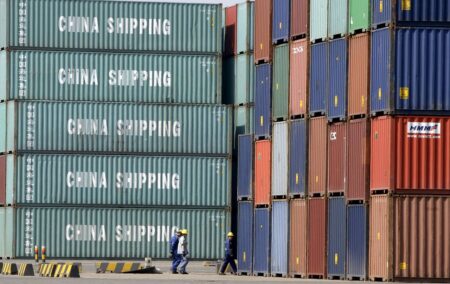An outbreak of Covid-19 in China’s Guangdong province, causing acute congestion at the region’s ports, is the latest setback for the global container shipping industry, adding to tensions in global supply chains.
The knock-on effects could take many months to resolve, according to a BBC report.
It cites industry experts as warning that disruption in the global container shipping industry shows no sign of being resolved quickly and could lead to shortages in the run-up to Christmas.
The problems in Guangdong are just the latest in a series of severe setbacks for the industry. Shipping firms have been struggling to cope with dramatic fluctuations in demand triggered by the pandemic, as well as the consequences from the recent blockage of the Suez Canal.
The global nature of the sector, and the lack of spare capacity within it, means that problems in one region can have ripple effects around the world for several months.
According to the report, Yantian International Container Terminal is one of a number of ports in the Shenzhen region, which collectively form a vital gateway for exports from the Pearl River Delta, a major Chinese centre for manufacturing and technology.
But since late May the terminal has been operating at a fraction of its normal capacity, with operations restricted to control the spread of Covid. This has led to severe congestion, with dozens of ships waiting outside the port for a berth to become available.
Over the past few days, shipping lines have been diverting vessels away from Yantian to other nearby terminals in the Delta area.
But, according to Nils Haupt, communications director at the German shipping line Hapag-Lloyd, this has created new problems.
The growing crisis in southern China is described as the latest blow to hit the shipping industry, which has been suffering from acute disruption for more than a year.
A dramatic slowdown in the early stages of the pandemic was followed by a frenzy of activity, as customers, unable to travel or socialise in their normal ways, ordered more consumer goods.
This sudden shift in demand, from famine to feast, threw delicately balanced supply chains out of kilter. Ports in Europe and North America became clogged, with too many vessels arriving at the same time, while the supply of empty containers for new consignments dried up, because too many of them were sitting at quaysides around the world.
These conditions were exacerbated by the blockage of the Suez Canal in March.

